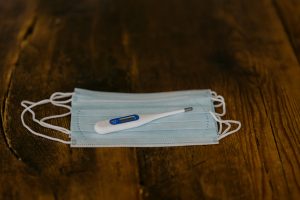 Whether you have your own personal crisis in Irvine, CA, or a nationwide crisis like the pandemic, one thing is certain, staying healthy will help you navigate the pitfalls more successfully. Some common effects on stress include chest pain, stomach problems, headache, fatigue and a lowered immune system. It can cause lack of motivation, restlessness, anxiety or depression and lead to heavy alcohol or drug misuse, social isolation or even overeating. You can see why avoiding stress is part of staying healthy.
Whether you have your own personal crisis in Irvine, CA, or a nationwide crisis like the pandemic, one thing is certain, staying healthy will help you navigate the pitfalls more successfully. Some common effects on stress include chest pain, stomach problems, headache, fatigue and a lowered immune system. It can cause lack of motivation, restlessness, anxiety or depression and lead to heavy alcohol or drug misuse, social isolation or even overeating. You can see why avoiding stress is part of staying healthy.
Exercise will help keep you healthy and deal with stress.
You don’t have to exercise a long time, just work out long, just a half hour a day or two and a half hours a week. It can be as simple as a brisk walk. If you want to be more vigorous, such as a high intensity interval training session, a vigorous workout at the gym, jogging or swimming laps, you can cut that amount of weekly time in half and still get the benefits of the workout. Exercising regularly lowers the risk of heart disease, helps you shed unwanted pounds, reduces the risk of diabetes by aiding in blood sugar management, strengthens bones and muscles, improves your mind and your mood and helps lower the risk of cancer.
During a crisis, keep your immune system in good repair with a healthy diet.
You can start by increasing the amount of fresh fruits and vegetables in your diet and eliminating processed food or food with added sugar. You don’t have to spend a lot of money if fresh veggies and fruit aren’t in your budget, frozen ones are just as good and sometimes even have more nutrients because they’re picked at their ripest and immediately frozen. Have a meatless Monday and get plenty of fiber in the process. Rice and beans provide all the protein you need and can help keep the budget in line.
Take time to relax and rest your brain.
One of the hardest things to do is tame your brain during a time of crisis, but it’s also one of the most important things to do at that time. Learn deep breathing techniques, meditation or other relaxation techniques and make time to practice at least once a day. An attitude of gratitude is also important, not just for your mental health, but also for your physical health. Taking an inventory of all the good in your life, will help put the crisis in perspective.
- Getting adequate sleep can help you function better in a crisis and is good for your health. If you have problems sleeping, consider working out regularly. It’s known to help people with insomnia.
- Being social may not seem possible, but it is. It doesn’t mean you go out on the town, just keep in touch with dear friends and family. Spend a few minutes a day talking via phone or in person can be just the medicine you need.
- Stay hydrated. Make it a habit to carry a bottle of water with you and sip on it throughout the day. It’s even more important in the winter, when the air inside is dry. You’ll be amazed at how water can perk you up more than a cup of coffee.
- Don’t panic. Help keep yourself in line with a schedule that you stick with throughout the crisis. Some routines should stay in place. Get up and go to bed at the same time each day. Eat meals, exercise and practice the same hygiene. Having a sense of order in your life helps you stay calm in a crisis.
For more information, contact us today at Next Level Fitness
